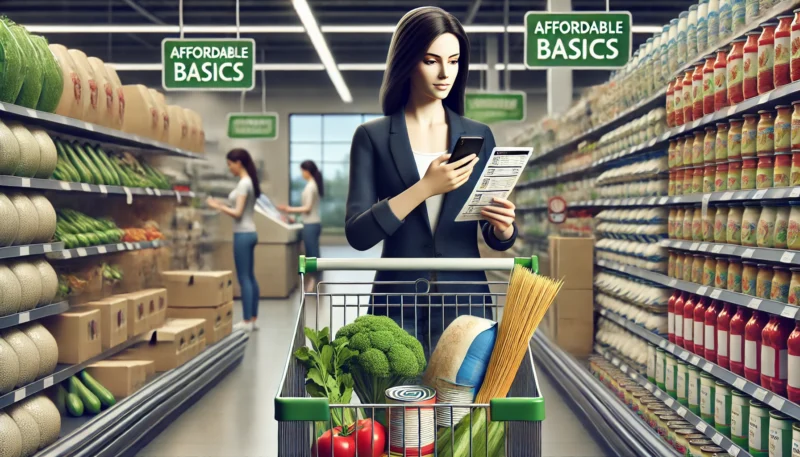Groceries are one of the biggest recurring expenses in most households—but they’re also one of the easiest to control. With the right strategies, you can eat well, reduce waste, and still save money every time you shop.
Here’s how to shop smart and stretch your grocery budget without sacrificing quality or nutrition.
Plan Before You Shop
1. Make a Weekly Meal Plan
Planning meals in advance prevents impulse purchases and food waste. When you know what you’re cooking, you only buy what you actually need.
Tip: Include meals that use similar ingredients to save money and reduce waste.
2. Create a Grocery List (and Stick to It)
Never shop without a list. It keeps you focused and helps avoid unnecessary items.
Bonus Tip: Organize your list by sections of the store (produce, dairy, frozen, etc.) to speed up your trip and minimize temptation.
Shop Strategically
3. Don’t Shop When You’re Hungry
Shopping on an empty stomach increases the chance of buying snacks and items you don’t need. Eat before you go—it saves money and calories.
4. Buy in Bulk (Smartly)
Items like rice, beans, pasta, oats, and toilet paper often cost less when bought in larger quantities.
Warning: Only buy in bulk if:
-
You’ll actually use the item before it expires
-
You have storage space
-
It’s truly a better deal (check the unit price)
5. Compare Unit Prices
Look beyond the big number on the tag. The unit price (price per ounce, pound, liter, etc.) reveals the real value.
Tip: Often, store-brand or larger packages have a better unit price.
Use Technology to Save
6. Use Cashback and Coupon Apps
Apps like Ibotta, Checkout 51, Fetch, and Honey offer discounts, rebates, and rewards for items you’re already buying.
Tip: Scan your receipt after shopping to get cash back automatically.
7. Check the Store’s Weekly Ad
Most grocery stores post digital flyers with current promotions. Plan meals around items that are on sale.
8. Use Loyalty Programs
Sign up for your store’s rewards card to access exclusive deals and discounts. Some programs offer personalized coupons based on your purchase history.
Shop Smart in the Store
9. Shop the Perimeter
The outer aisles of most stores hold fresh produce, meats, dairy, and staples. The center aisles often have processed and overpriced convenience foods.
10. Buy Generic or Store Brands
Generic products are often just as good as name brands—and usually much cheaper.
Tip: Try swapping one brand-name item per week for the store brand and see if you notice a difference.
11. Limit Convenience Foods
Pre-cut fruits, shredded cheese, and ready-made meals are convenient but cost more. Buying whole ingredients and prepping them yourself saves money.
Use Smart Payment Tactics
12. Set a Weekly Grocery Budget
Instead of monthly, break your grocery budget into weekly limits. It’s easier to manage, especially if you’re paid weekly or biweekly.
Tip: Withdraw your grocery budget in cash to avoid overspending.
13. Track Grocery Spending Over Time
Keep receipts or log grocery expenses in a budgeting app. You’ll begin to see trends and areas to improve.
Bonus Tips to Save More
-
Shop alone: Kids or partners may add impulse items to the cart.
-
Freeze leftovers: Don’t let extra food go to waste.
-
Buy seasonal produce: It’s fresher and usually cheaper.
-
Avoid bottled drinks: Water from home is free and eco-friendly.
Final Thoughts: Save Without Sacrificing
Grocery shopping doesn’t have to break your budget. With planning, discipline, and a few smart tools, you can save a lot without giving up the foods you enjoy.
Remember: every dollar you save at the store is a dollar you can invest in your goals.

